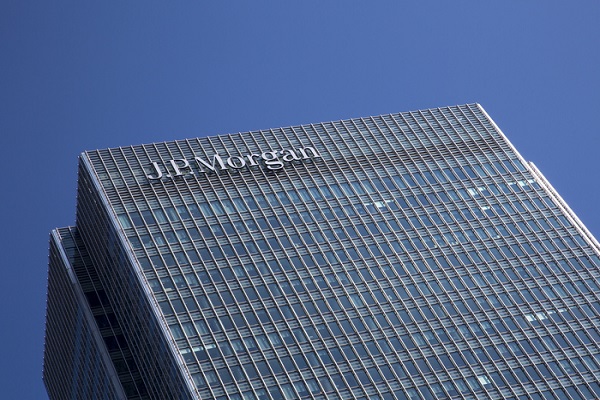ii view: banking giant JP Morgan dives after Q2 results
14th July 2022 15:17
by Keith Bowman from interactive investor
Shares for this Dow Jones constituent are down almost 30% year-to-date and have fallen heavily in response to latest number. We assess prospects.

Second-quarter results to the 30 June
- Revenue up 1% $31.6 billion
- Net income down 28% to $8.65 billion
- Earnings per share down 27% to $2.76
Chief executive Jamie Dimon said:
“In our global economy, we are dealing with two conflicting factors, operating on different timetables. The U.S. economy continues to grow and both the job market and consumer spending, and their ability to spend, remain healthy. But geopolitical tension, high inflation, waning consumer confidence, the uncertainty about how high rates have to go and the never-before-seen quantitative tightening and their effects on global liquidity, combined with the war in Ukraine and its harmful effect on global energy and food prices are very likely to have negative consequences on the global economy sometime down the road. We are prepared for whatever happens and will continue to serve clients even in the toughest of times.”
ii round-up:
US banking giant JPMorgan Chase & Co (NYSE:JPM) today detailed a decline in second-quarter earnings year-over-year as credit provisions taken because of the uncertain economic outlook contrasted with last year’s decision to write back provisions taken during the pandemic.
Earnings fell 27% to $2.76 per share, missing Wall Street estimates for nearer to $2.88, with an overall bad debt charge of $1.1 billion set against a writeback of $2.28 billion in provisions this time last year. Set against a cautious outlook, the New York headquartered bank also announced a temporary suspension of its share buyback programme.
JP Morgan shares retreated by around 4% in pre-market US trading having come into this latest announcement down almost 30% year-to-date. Shares for US rival Citigroup (NYSE:C) are down by a similar amount this year, while Asia-focused HSBC Holdings (LSE:HSBA) is up by over 15%. The FTSE All World index year-to-date is down just over a fifth.
- What happens to UK bank shares in a recession?
- Ask ii...what are the pros and cons of investing in a US company?
- Want to buy and sell international shares? It’s easy to do. Here’s how
Overall profit for JP Morgan’s corporate and investment banking division fell by 26% to $3.7 billion, hit by a 54% retreat in investment banking fees. Revenues for both its fixed income and equity related businesses rose 15% to $4.7 billion and $3.1 billion respectively, aided by volatile market conditions and demand for equity derivatives
At its more traditional banking business, profit fell 45% to $3.1 billion, largely reflecting the absence of any pandemic related credit writebacks. Net revenue fell 1% to $12.6 billion. Growth in deposits sat against a 26% retreat in home lending revenues, while card and autos revenues fell 6% to $5 billion. Divisional costs rose 9%, pushed higher by wage compensation and technology spend.
Assets under management for its wealth division fell 8% to $2.7 trillion, hindered by falling markets.
The bank previously declared a second-quarter dividend of $1 per share, in line with the previous quarter. It also bought back $224 million of its own stock over the quarter, down from $1.7 billion in the first quarter of 2022.
ii view:
JP Morgan is a highly diverse US banking giant. Its operations cover both traditional consumer and corporate banking along with investment banking and asset management. During its last full financial year, North America generated just over four-fifths of overall revenues, with Europe next in line at just under a tenth.
For investors, a cocktail of outlook uncertainties including elevated inflation, squeezed consumer incomes and heightened geopolitical tensions all now offer room for caution. A hike too far in interest rates could push the US economy into recession, increasing potential bad-debt provisions, while management caution has now seen the share buyback programme suspended.
On the upside, rising interest rates can be beneficial for banks, increasing their ability to widen the margin between deposit and lending rates. The benefits of a diversified business model covering both traditional and investment banking should not be forgotten, while the historic and forecast dividend yield of around 3.5% is not completely derisory in an era of low if rising rates. On balance, and while reasons for caution have risen, JP Morgan remains something of a long term play on the world’s largest economy.
Positives:
- Business diversity
- Investing in technology
Negatives:
- Economic outlook uncertainty
- Rising staff costs
The average rating of stock market analysts:
Buy
These articles are provided for information purposes only. Occasionally, an opinion about whether to buy or sell a specific investment may be provided by third parties. The content is not intended to be a personal recommendation to buy or sell any financial instrument or product, or to adopt any investment strategy as it is not provided based on an assessment of your investing knowledge and experience, your financial situation or your investment objectives. The value of your investments, and the income derived from them, may go down as well as up. You may not get back all the money that you invest. The investments referred to in this article may not be suitable for all investors, and if in doubt, an investor should seek advice from a qualified investment adviser.
Full performance can be found on the company or index summary page on the interactive investor website. Simply click on the company's or index name highlighted in the article.